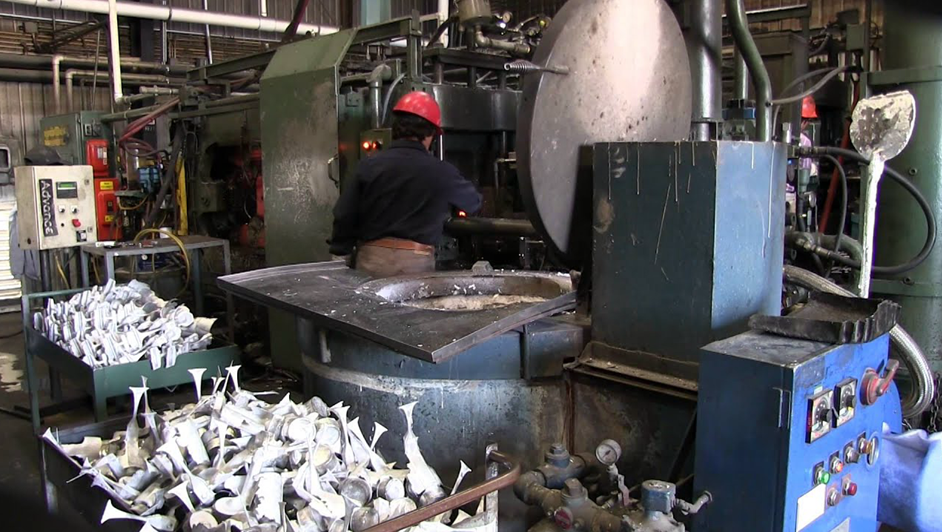Introduction:
In the world of manufacturing, precision and efficiency are key factors that determine the success of a product. CNC aluminum parts machining has revolutionized the manufacturing industry by providing precision manufacturing and finishing excellence. With the advancement of technology, CNC machining has become an essential process in the production of high-quality aluminum parts. This article will delve into the intricacies of CNC aluminum parts machining and highlight its advantages in precision manufacturing and finishing.
Precision Manufacturing:
CNC machining involves the use of computer numerical control systems to control machine tools such as lathes, mills, routers, and grinders. This automated process ensures high precision and accuracy in the production of aluminum parts. The computer-controlled machines follow the programmed instructions to perform complex manufacturing operations, including cutting, drilling, milling, and shaping aluminum. Unlike traditional manual machining, CNC aluminum parts machining eliminates the risk of human error and ensures consistent quality.
One significant advantage of CNC aluminum parts machining is the ability to produce complex and intricate designs. The computer-controlled machines can execute intricate tool path movements with utmost precision, resulting in the creation of intricate designs and features. This level of precision is crucial in industries such as aerospace, automotive, and electronics, where intricate and intricate aluminum parts are required.
Furthermore, CNC machining allows for high repeatability. Once a part is programmed, the CNC machine can reproduce the exact specifications repeatedly, ensuring consistency and uniformity in the produced aluminum parts. This repeatability is essential in mass production, where large quantities of aluminum parts need to be manufactured with consistent quality.
Finishing Excellence:
In addition to precision manufacturing, CNC aluminum parts machining also excels in finishing processes. Finishing refers to the final steps taken to enhance the appearance, functionality, and durability of the aluminum parts. CNC machining offers various finishing options, including polishing, anodizing, plating, painting, and powder coating.
Polishing is a common finishing technique used to improve the surface finish of aluminum parts. CNC machines can achieve exceptional surface smoothness and shine by precisely removing small imperfections and irregularities. This results in a visually appealing and aesthetically pleasing finish.
Anodizing is another widely used finishing technique in CNC aluminum parts machining. Anodizing involves creating a protective oxide layer on the surface of the aluminum part, enhancing its corrosion resistance and durability. The CNC machine can precisely control the anodizing process, ensuring uniform and consistent coating thickness.
Additionally, CNC machining allows for precise plating, painting, and powder coating of aluminum parts. These finishing processes not only improve the appearance of the parts but also provide enhanced protection against corrosion, wear, and environmental factors.
Advantages of CNC Aluminum Parts Machining:
CNC aluminum parts machining offers numerous advantages over traditional machining methods. Firstly, it significantly reduces production time. The automated nature of CNC machining eliminates the need for manual setup and adjustments, thereby reducing the overall production time. This allows for faster delivery of aluminum parts, meeting tight deadlines and increasing customer satisfaction.
Secondly, CNC machining ensures cost-effectiveness. While the initial setup cost of CNC machines may be higher compared to traditional machines, the long-term benefits outweigh the initial investment. CNC machining eliminates the need for highly skilled operators and reduces the risk of errors, resulting in lower labor costs and higher productivity. Additionally, the repeatability and accuracy of CNC machining reduce material waste, optimizing material usage and lowering production costs.
Furthermore, CNC machining offers versatility and flexibility in aluminum parts manufacturing. The computer-controlled machines can easily switch between different operations and produce a wide range of parts with varying complexities. This flexibility allows manufacturers to adapt to changing market demands and produce customized aluminum parts efficiently.

Conclusion:
CNC aluminum parts machining has revolutionized precision manufacturing and finishing excellence. Its ability to produce intricate designs with high precision, repeatability, and efficiency sets it apart from traditional machining methods. With the advantages of faster production time, cost-effectiveness, and versatility, CNC aluminum parts machining is an indispensable process in the manufacturing industry. As technology continues to advance, CNC machining will undoubtedly play an even more significant role in shaping the future of aluminum parts manufacturing.
-

- high precision die-casting steering wheel for automotive
-

- Bicycles for Children Kids Bikes for 3-16 years old Child /OEM Baby Children Cycle Kids Mountain Bicycles 2022
-

- Custom-made metal parts macbook middle board produced
-

- OEM die-casting components & parts
-

- Magnesium thixomolding parts UAV housing
-

- High precision magnesium alloy die casting parts for automotive ignition lock

 0086-750-5616188
0086-750-5616188 +86 13392089688
+86 13392089688 sales@zhongmei-tech.com
sales@zhongmei-tech.com







